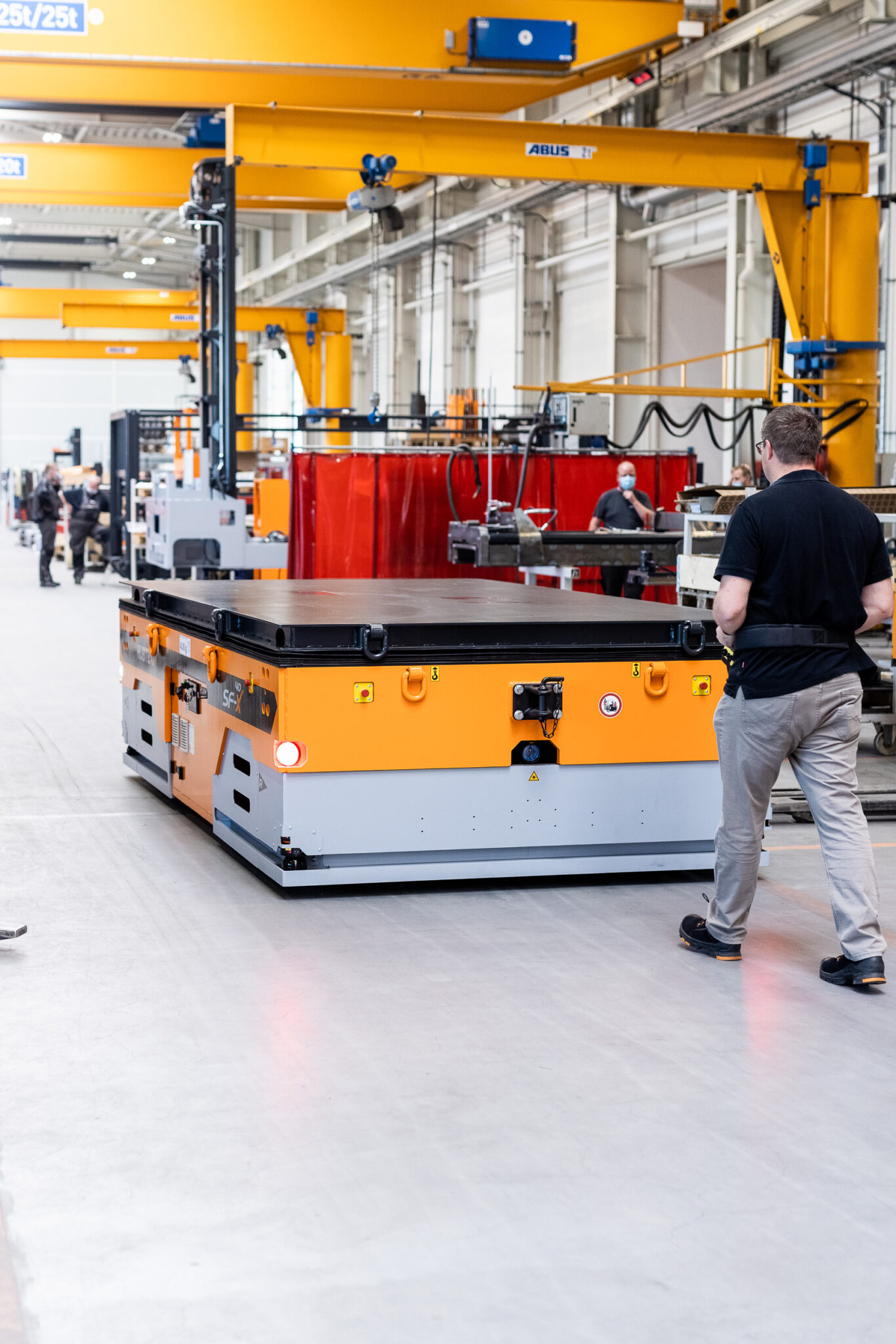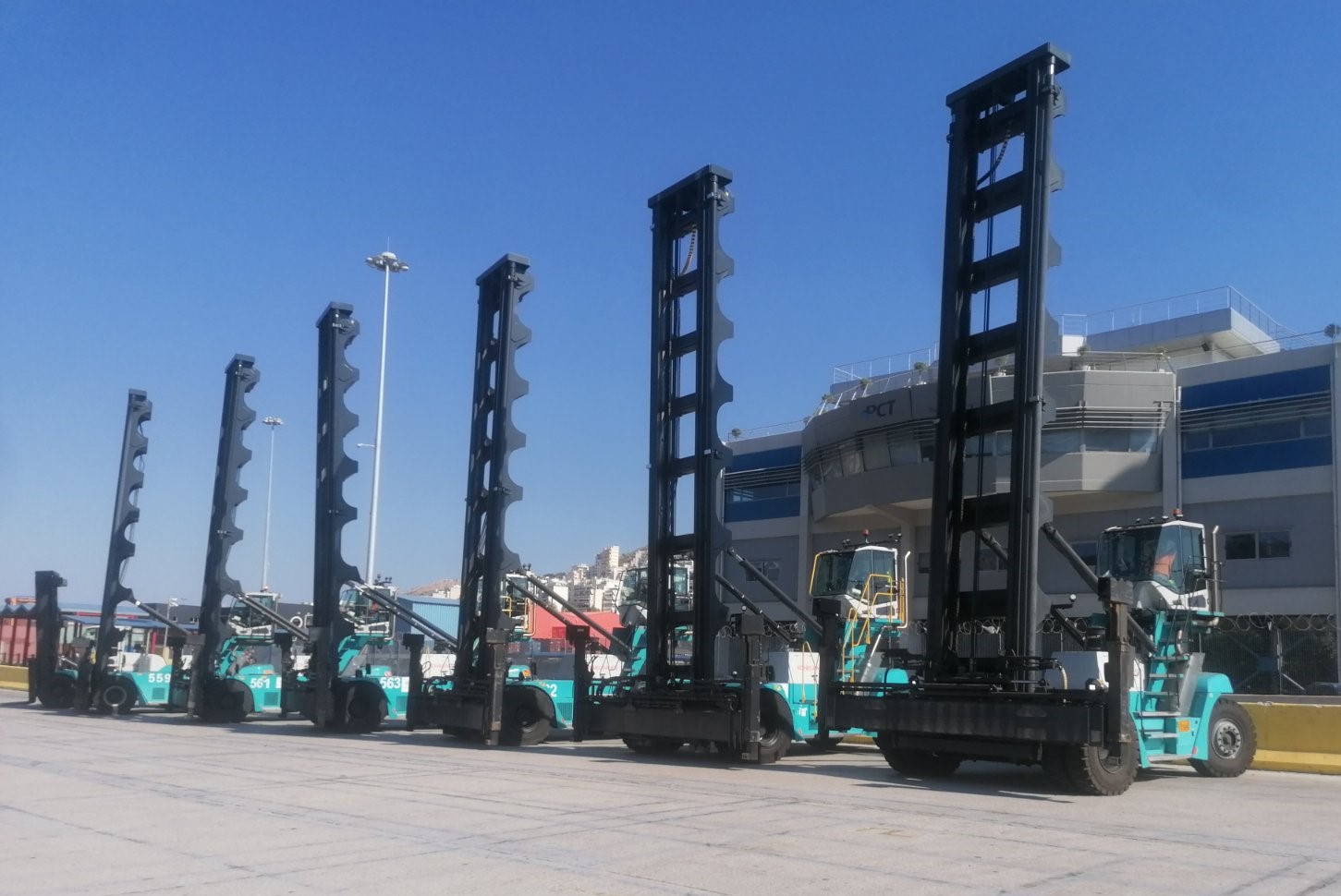The Corona pandemic has posed major challenges to people around the world and has had a huge impact on all areas of the global economy. Rolf Eiten, President & CEO, Clark Europe, explains how the company is responding to the challenges it faces and how Covid-19 has changed the everyday business of the materials handling vehicle manufacturer.
We have been dealing with the Covid 19 pandemic for more than a year and a half. What has changed in Clark’s day-to-day business?
Home office and virtual collaboration have now become firmly established in our company. And we also communicate with our business partners or colleagues within the Clark organisation via video conference. The project work of our teams is done via digital whiteboards and we use virtual presentation platforms for training our sales partners. The Corona pandemic has shown us that virtual exchange works well and that we can save time and resources with it. However, it does not completely replace face-to-face events in the long run. Especially the cooperation with our business partners and customers thrives on personal contact on site.
How would you describe the economic situation of your company?
After the order situation was very poor in the 1st half of 2020 due to the Corona crisis, it picked up again strongly in the 2nd half of 2020, so that we were able to close the 2020 financial year with growth of just over 3% compared to the previous year. In the first half of 2021, the order situation is better than ever. The market for materials handling vehicles in our market region increased by 70% in 2021 compared to the previous year.
Globally, Clark was even able to increase the order volume by 50% compared to the result of the previous year. In the EMEA region – that is, in Europe, the Middle East and Africa – we were able to increase our order intake by 80% compared to the previous year. I don’t think anyone expected the market to pick up so much speed during the Corona crisis. One downer, however, is that we, like many of our competitors, have problems in the supply chain and in the procurement of components, as many vendor parts come from Asia.
The consequence for our customers is that they have to wait much longer for the delivery of vehicles. However, the supply chain is not the only challenge the market is currently facing. In addition, there is a drastic increase in freight costs, delivery delays due to bottlenecks in sea freight and the constantly rising prices of raw materials. The industry is currently operating in a very difficult environment.
Is the fact that for years not only the procurement of supplier parts, but also entire production processes were relocated abroad, and in particular to Asia, now falling on the manufacturers’ feet?
Trade relations between Europe and Asia have become stronger and stronger over the years. Companies have not only placed orders in the Far East, but also transferred technology. Today, there is almost no company that does not buy material from China. So, we are more or less facing the same dilemma here. I believe that the Covid 19 pandemic is showing us quite clearly how great the danger of this dependence on Asia really is, which we have all accepted so far – and yes, now it is falling on our feet that we have outsourced production to Asia in order to save costs. Now we are paying dearly in every respect.
What measures have you taken to at least counteract this?
To secure our supply chain, we ordered machines for our own stock at an early stage. In addition, we have taken a number of measures in conjunction with the Clark factories worldwide and the transporters: We visited our suppliers to get an idea of the situation on site and to find out how we can support them to speed up material procurement. For example, we have ordered parts in advance to help suppliers, changed suppliers to reduce costs and looked for new carriers to speed up deliveries. At the moment, therefore, production is running in all our factories and the supply chains are also largely intact. It just takes a little longer.
Do you now regret that the assembly production in Duisburg is not yet up and running?
No, on the contrary! I am glad that this project has been put on hold for the time being. Assembly production in Duisburg would not significantly change the current situation, because 95% of the parts would come from the Far East in a modular system. We would be in exactly the same dependency and would perhaps only have more flexibility in assembling the units.
Do you now use the capacities created for assembly production elsewhere?
Absolutely! We have put the focus on the used equipment business and the expansion of our direct business in the Duisburg area.
That means you use the free workshop capacities for reconditioning used equipment?
Exactly. Last year, we started buying used vehicles on a trial basis in order to learn how to refurbish used vehicles and to develop quality standards. Among other things, we invested in the existing paint shop and modernised and upgraded it. We can now paint equipment using the wet paint process, which makes the paintwork much higher quality and more durable. This means that the customer can count on very high-quality vehicles with Clark used vehicles. The first reconditioned vehicles were practically snatched out of our hands. Now we are expanding this business area bit by bit. Since visits to customers have become possible again, our direct business has also picked up strongly. So, we can’t complain.
Clark is also active in expanding the product range? In the field of warehouse technology, the range of vehicles with lithium-ion technology has been expanded?
Yes, that is correct. We expanded our range in the low-platform truck sector last year with the WPio series with load capacities of 1.2 to 2t. Operators will be able to benefit from the advantages of the lithium-ion battery with Clark in future: such as easy handling and freedom from maintenance, the high energy density with correspondingly high driving performance, fast intermediate charging without limiting the service life as well as gassing-free recharging of the battery.
With the COP1, we have brought an order picker to the market that is not only extremely efficient in picking goods, but also – thanks to the elevating work platform – proves itself as a rolling ladder or working platform. We have also expanded the range of hand pallet trucks with the HPT Eco and HPT Premium. Both trucks are characterised by high stability and easy operation and have a load capacity of 2500kg – the HPT Eco is designed for lighter and the HPT Premium for more demanding applications.
Has something also changed with Clark engine technology?
Absolutely! In 2020, Clark has launched a Kubota Stage 5 diesel engine with diesel particulate filter and diesel oxidation catalytic converter for the diesel forklift trucks of the C40-55sD and C60-80D900 series with load capacities of 4 to 8t. This opens up areas of application for Clark diesel forklift trucks that were denied to them in the past due to the lack of a diesel particulate filter.
You also presented a new solution for production logistics?
Correct. Clark brought a tugger train system onto the market at the beginning of the year. With this all-in-one solution, we have specifically addressed the specific requirements of industrial customers. The tugger train consists of the Clark CTX40-70 tractor with a trailer load of 4 or 7t as well as the CTR01 and CTR02 trailers. The CTR01 trailer, designed as a single U-frame, is designed for customers who mainly have to transport Euro pallets. It can accommodate a mobile trolley on which Euro pallets with a maximum load of 1200kg can be transported.
The Double U-Frame trailer CTR02 can accommodate both Euro pallets and other types of pallets commonly used in industry. Via a movable centre beam, the operator can flexibly choose between a trolley with a size of 1600 x 1000mm and a payload of up to 1600kg or two trolleys with a load weight of 800 kg each. We are currently realising a new customer project in this area. For this purpose, we have expanded our range of tugs to include vehicles with a load capacity of 3t.











